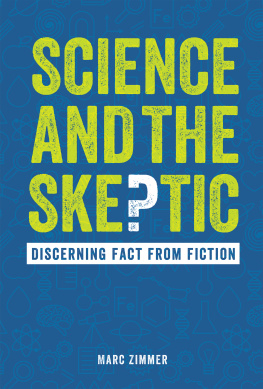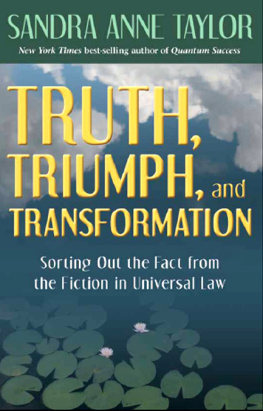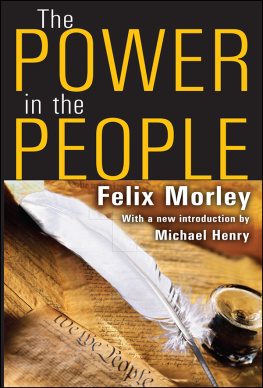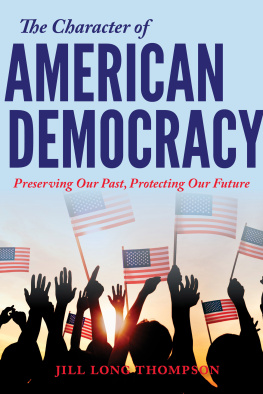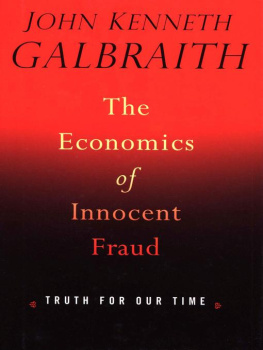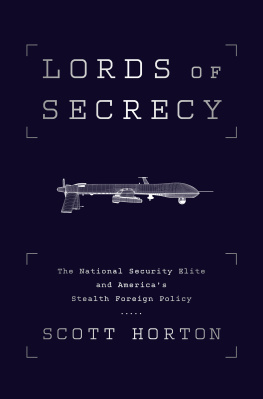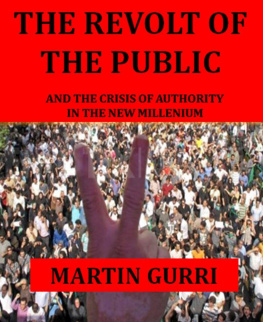


Copyright 2014 by Charles Lewis.
Published in the United States by PublicAffairs, a Member of the Perseus Books Group
All rights reserved.
Printed in the United States of America.
No part of this book may be reproduced in any manner whatsoever without written permission except in the case of brief quotations embodied in critical articles and reviews. For information, address PublicAffairs, 250 West 57th Street, 15th Floor, New York, NY 10107.
PublicAffairs books are available at special discounts for bulk purchases in the U.S. by corporations, institutions, and other organizations.
For more information, please contact the Special Markets Department at the Perseus Books Group, 2300 Chestnut Street, Suite 200, Philadelphia, PA 19103, call (800) 810-4145, ext. 5000, or e-mail .
Book design by Linda Mark
Lewis, Charles, 1953
935 lies : the future of truth and the decline of Americas moral integrity / Charles Lewis.First Edition.
pages cm
ISBN 978-1-61039-118-4 (ebook) 1. Political ethicsUnited States. 2. Business ethicsUnited States. 3. TruthPolitical aspectsUnited States. 4. TruthSocial aspectsUnited States. 5. Political cultureUnited States. 6. United StatesMoral conditions. 7. United StatesPolitics and governmentMoral and ethical aspects. I. Title. II. Title: Nine hundred and thirty-five lies.
JK468.E7L494 2014
323.4450973dc23
2014005739
First Edition
10 9 8 7 6 5 4 3 2 1
For my wife, Pamela Gilbert
Times glory is to calm contending kings, To unmask falsehood and bring truth to light.
WILLIAM SHAKESPEARE, 1594
If a nation expects to be ignorant and free, in a state of civilization, it expects what never was and never will be.
THOMAS JEFFERSON, 1816

Contents
When regard for truth has been broken down or even slightly weakened, all things will remain doubtful.
ST. AUGUSTINE, C. 395
The result of a consistent and total substitution of lies for factual truth is not that the lies will now be accepted as truth, and the truth be defamed as lies, but that the sense by which we take our bearings in the real worldand the category of truth vs. falsehood is among the mental means to this endis being destroyed.
HANNAH ARENDT, 1967

A T THE END OF 2004, a series of public opinion polls offered disturbing news. More than half of all Americans, we learned, believed that there had been weapons of mass destruction (WMDs) in Iraqthe principal raison dtre for George W. Bushs war of choice theredespite the fact that numerous widely publicized bipartisan and international reports had definitively shown that no such weapons existed. This stubborn refusal to face the facts about Iraq continues today for millions of Americans.
Facts are and must be the coin of the realm in a democracy, for government of the people, by the people, and for the people, in But in regard to the Iraq War, it seems, facts are now irrelevant or at least debatable, a mere matter of opinion, for a majority of Americans. And if facts no longer matter to millions of our fellow citizens, then what becomes of the traditional role of the journalist as the independent watchdog digging through obfuscation, secrecy, and deception by the powerful in search of what Carl Bernstein once called the best obtainable version of the truth?
This is a question that touches me personallynot just as a concerned citizen, but as someone who has dedicated his life and work to the pursuit of truth. In more than three decades as an investigative reporter in Washington, DC, my approach toward those in power, regardless of party or ideology, has followed the principle Watch what they do, not what they say. Politicians, captains of industry, and their zealous aides too often resemble circus barkers, shilling for attention and advantage, with little regard for accuracy or veracity, using the press and the news media not to enlighten but to bamboozle the public in pursuit of votes, profits, and power. When necessary, they even employ the wiles of deception to conceal, disguise, or justify unseemly and sometimes outright criminal behavior. As George Orwell wrote, in words that still ring true more than half a century after they were written, Political speech and writing are largely the defence [sic] of the indefensible... Political language... is designed to make lies sound truthful and murder respectable, and to give an appearance of solidity to pure wind.
So as a professional truth-seeker, I have always been skeptical of statements by those in power, preferring to ignore the official versions of events in my quest for the (sometimes ugly) underlying realities. That quest continues. But when I learned the extent to which the public had swallowed and accepted the official lies about WMDs in Iraq, I realized that I actually could no longer ignore what those in power had said. Their shameless manipulations and misrepresentations, I now saw, were a crucial element in the tragedy of that dubious war of choice, and therefore deserving of investigation and analysis in their own right. Precisely what had US government officials said to cause most Americans and their elected representatives to completely ignore facts, logic, and reason in the rush to war? Exactly who was involved and to what extent?
I began systematically to investigate the answers to those and other related questions, enlisting the help of a team of reporters, researchers, and other contributors that ultimately included twenty-five people. Nearly three years later, the Center for Public Integrity published Iraq: The War Card, a 380,000-word report with an online searchable database whose overall findings are summarized graphically in Appendix B of this book. It was released on the eve of the five-year anniversary of the invasion of Iraq and was covered extensively by the national and international news media.
Our report found that in the two years after the terrorist attacks of September 11, 2001, President George W. Bush and seven of his administrations top officials made at least 935 false statements about the national security threat posed by Iraq. The carefully orchestrated campaign of untruths about Iraqs alleged threat to US national security from its WMDs or links to al Qaeda (also specious) galvanized public opinion and led the nation to war under decidedly false pretenses. Perhaps most revealing: the number of false statements made by top Bush administration officials dramatically increased from August 2002 to the time of the critical October 2002 congressional approval of the war resolution and spiked even higher between January and March 2003, between Secretary of State Colin Powells address before the United Nations General Assembly and the fateful March 19, 2003, invasion.
Next page

